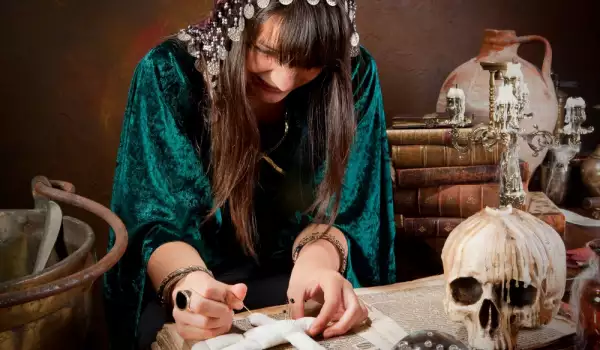The belief in witches severely slows human progress. Lost in their preoccupation with the supernatural, people undermine the trust between each other and at the end of the day, society stops its progress.
This theory emerged after an unusual study was carried out in Africa. Project leader was Boris Gershman from American University in Washington, D.C. According to scientists, the belief in the supernatural is a way to maintain order in society but it is not the best way.
The blind belief in the existence of witches unites people under the same norms of behavior. It's necessary to conform to these norms because whoever strays from the path is accused of being a witch or sorcerer.
Systematic dumbing down, the result of the refusal to advance and the hunting of witches, was a major factor in the Middle Ages and other historical eras. These hindered scientific and economic progress. Gershman reveals how witchcraft, the afterlife and witches lead to real economic indicators - mostly negative ones. Presently, this is most clearly evident in the societies of African countries.
A great many of the countries in equatorial and tropical Africa did not give in to the modernization of political life during the 60's of the past century. No one was able to overthrow the various widespread religious beliefs and customs, so even today the people living there follow the same principles as they have for tens of centuries. Their propagators and followers are beyond convinced in the existence of sorcerers, witches, curses and other manifestations of the afterlife.
When it began, witch hunting played the role of maintaining order in society. This sustained a somewhat equal society, where local aristocrats were forced to share their resources. If they did not, they risked being accused of witchcraft.

This system worked well at first but with time it was the very belief in curses that led people to a life of extreme poverty, despite the huge quantity of natural resources. Witch hunting severely undermined people's trust in one another. They developed a fear of collaboration because they could be accused of witchcraft at any point or any would-be witches might harm them.
The fear of the envy of others, that they've achieved something more, led to the complete absence of activities on part of the people in these societies. They did not work, nor put in any efforts to improve their well-being out of fear that they would be attacked or killed.













